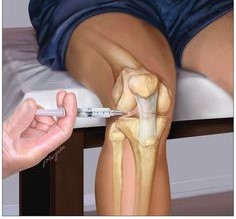Injectable Therapy (Part 2 of 2): Hyaluronic Acid, Perineural Injections, & Trigger Point Injections
Article by Dr. Kelly Robertson
The more commonly discussed injectable therapies are mentioned in Part 1 of this article. Part 2 of this article contains additional injectable therapies that have been found to be beneficial for chronic pain.

Hyaluronic acid:
Hyaluronic acid (HA) is a natural substance that has been utilized to treat painful arthritis, as well as tendon and ligament injuries. Hyaluronic acid provides lubrication and shock absorption for arthritic joints, minimizing the experience of pain. HA may also be used to improve the integrity and strength of tendon and ligament structures. Hyaluronic acid injections have been found to reduce pain in those living with hip and knee osteoarthritis.

Perineural injections:
Perineural injection therapies are commonly used to treat chronic pain. They consist of a subcutaneous injection of a substance to reduce neurogenic pain. The injection of a dilute sugar solution into the subcutaneous tissue layers allows for treatment of neuroinflammation, and a reduction in the sensation of pain. This treatment may be beneficial for neuralgia, fibromyalgia, headaches, migraines, nerve impingement, neuropathy, as well as low back pain.
Trigger point injection:
Trigger point injections treat dysfunctional and tight muscles which cause pain— more commonly known as “knots”. A trigger point injection consists of locating and isolating the dysfunctional portion of the muscle and injecting a solution—allowing for release, relaxation, and reduction of inflammation. This can be beneficial for those with myofascial pain syndromes resulting in headaches, body aches, or chronic pain.
If you missed it check out the first article in this series (Article # 1) where we cover Prolotherapy, PRP, and Cortizone injections.
Conclusion
In conclusion, there are many options for managing a multitude of chronic pain conditions. Injectable therapies are an underutilized option for individuals living with chronic pain.
You May Also Like...
-
 ArticleView Post
ArticleView PostRelaxation Strategies for the Pelvic Floor
The pelvic floor is an important group of muscles that can significantly impact our quality of life when not functioning properly.
-
 ArticleView Post
ArticleView PostIs Foam Rolling Worth It?
Do you start or finish your workout routine with a bit of foam rolling? Read here: this article may change your mind.
-
 ArticleView Post
ArticleView PostCategorizing & Treating Neck Pain
It’s probably safe to say that we all have a pain in the neck from time to time. But what type of neck pain are you experiencing?